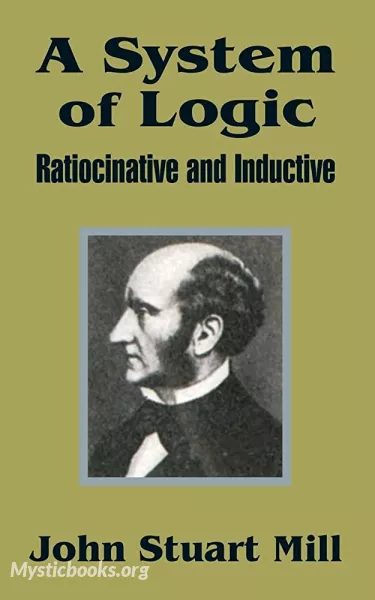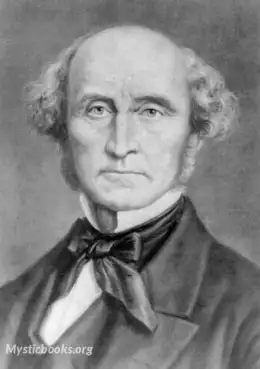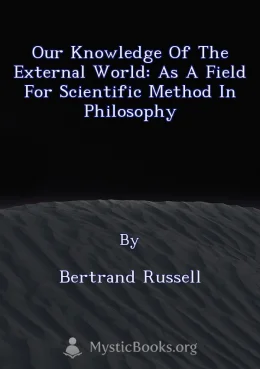
A System of Logic
'A System of Logic' Summary
"A System of Logic" by John Stuart Mill is a book that explores the principles and methods of logical reasoning and scientific inquiry. Mill, who was a philosopher, economist, and political theorist, wrote the book in 1843, and it has since become an influential work in the field of logic and philosophy.
The book is divided into five parts, with each part building upon the previous one. Part One provides an overview of the principles of inductive reasoning, which involves using observations and evidence to make generalizations and draw conclusions. Mill argues that inductive reasoning is essential for scientific inquiry, and that it requires a combination of empirical observation and logical reasoning.
In Part Two, Mill examines the principles of deductive reasoning, which involves deriving specific conclusions from general principles. He argues that deductive reasoning is important for mathematics and other fields that rely on logical deduction.
Part Three of the book explores the nature of evidence and the criteria for determining whether evidence is sufficient to support a particular claim. Mill argues that evidence should be evaluated based on its quality and relevance, and that it should be subjected to rigorous testing and experimentation.
In Part Four, Mill discusses the methods of scientific inquiry, including the importance of systematic observation, experimentation, and hypothesis testing. He argues that science should be grounded in empirical evidence and that theories should be subjected to rigorous testing and scrutiny.
Finally, in Part Five, Mill discusses the limits of knowledge and the role of intuition and speculation in scientific inquiry. He argues that while speculation and intuition can be useful in generating new ideas and hypotheses, they should always be subject to empirical testing and observation.
Overall, "A System of Logic" is a comprehensive and insightful book that provides a solid foundation for understanding the principles of logical reasoning and scientific inquiry. It is an important work for young readers interested in philosophy, logic, and science, and it remains relevant today as a guide to critical thinking and evidence-based decision-making.
Book Details
Language
EnglishOriginal Language
EnglishPublished In
1843Genre/Category
Tags/Keywords
Authors

John Stuart Mill
England
John Stuart Mill usually cited as J. S. Mill, was an English philosopher, political economist, Member of Parliament, and civil servant. One of the most influential thinkers in the history of classical...
Books by John Stuart MillDownload eBooks
Listen/Download Audiobook
- Select Speed
Related books

Our Knowledge of the External World: As a Field for Scientific Method in Philosophy by Bertrand Russell
Bertrand Russell's 'Our Knowledge of the External World' delves into the intricate relationship between our sensory experiences and the scientific con...

Days Too Short by William Henry Davies
Days Too Short is a collection of poems by William H. Davies that explores the themes of nature, life, love, loss, memory, hope, beauty, transience, a...

Say Not the Struggle Naught Availeth by Arthur Hugh Clough
Arthur Hugh Clough's "Say Not the Struggle Naught Availeth" is a collection of poems reflecting the intellectual and moral turmoil of Victorian Englan...

Lake by Matthew Arnold
Matthew Arnold's "Switzerland" is a lyrical poem that explores themes of nature, solitude, and the complexities of human existence. Through vivid des...

World As Will and Idea, Vol. 1 of 3 by Arthur Schopenhauer
'The World as Will and Idea' is a seminal work of philosophy by Arthur Schopenhauer. In this book, Schopenhauer argues that the fundamental nature of...

Collected Poems of Lord Alfred Douglas by Lord Alfred Douglas
Lord Alfred Douglas's "Collected Poems" is a comprehensive anthology of his work, meticulously compiled by the author himself in his later years. It s...

Noiseless Patient Spider by Walt Whitman
LibriVox volunteers bring you eight different readings of Walt Whitman’s A Noiseless Patient Spider, a weekly poetry project. (Summary by Annie Colema...

Birds and All Nature, Vol. V, No 5, May 1899 by Various
'Birds and All Nature' was a monthly magazine published in the late 19th and early 20th centuries, showcasing the beauty and wonder of the natural wor...

Ten Common Trees by Susan Stokes
'Ten Common Trees' provides a simple and engaging introduction to the diverse world of trees found in North America. Designed specifically for young r...

Centaur by Algernon Blackwood
The Centaur is a classic work of fantasy and philosophy that explores the concept of a higher order of consciousness. Through the experiences of the p...
Reviews for A System of Logic
No reviews posted or approved, yet...